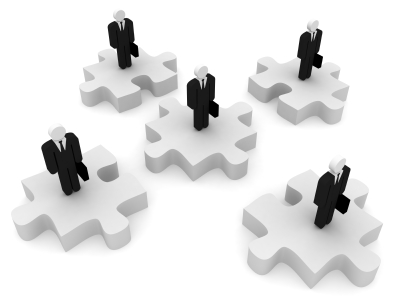 How do I become a fraud investigator? What skills does a forensic accountant need? I get asked these questions a lot, so today I’m going to give my thoughts on some of the important qualifications and skills a fraud investigator might have.
How do I become a fraud investigator? What skills does a forensic accountant need? I get asked these questions a lot, so today I’m going to give my thoughts on some of the important qualifications and skills a fraud investigator might have.
The educational background of a good fraud investigator can fall into a wide range of disciplines. Fraud investigators have degrees in accounting, finance, police science, law, and criminal justice. There is no widely accepted course of study for fraud investigators, although those degree programs that offer a strong foundation in accounting and finance seem to prepare students well for the numerical component of investigations.
Many excellent fraud examiners have a work history that is far more important than their educational background. On-the-job experience as a police detective, federal agent, insurance claims analyst, financial statement auditor, or financial analyst can lend itself well to a career in fraud investigations. It’s not unusual for practical experience in the field to play a much bigger part in the fraud investigator’s skills than any type of classroom training. The field of fraud examinations has an extremely varied range of educational and work experience. Other careers often have a few well-defined career paths, but the road to success as a fraud investigator can lead in many directions.
A strong financial background includes a working knowledge of financial statements and possibly a good grasp of the accounting process. Many successful investigators come from a background that did not necessarily focus on the process of accounting, so it is obviously still possible to be a great investigator without these skills, but any accounting knowledge will enhance a fraud investigation.
A highly regarded forensic accountant or fraud investigator is able to go beyond the investigation and excels in presenting the findings both in writing and orally. The investigator obviously has to be able to communicate the findings in a way that laypeople will be able to understand. Most cases have a possibility of going to court, so the ability to testify well is important.
How does a fraud investigator know if she or he will do well testifying in a deposition or trial? It is difficult to say until she or he has actually done it. However, if a person is afraid of speaking in public, it is probably not a good fit. Think of testifying as speaking in public with members of the audience heckling you. It is the opposing attorney’s job to poke holes in your work and opinions, and it can often get contentious. If you fluster easily or have a hard time making yourself understood, you will likely have a hard time testifying.
In anticipation of testifying as an expert witness, a fraud investigator must be willing to build a strong curriculum vitae (CV). The CV is often the first thing by which an expert will be judged, so making a good impression here is helpful. That good impression is made by offering up proof of your expertise, including degrees, certifications, employment history, continuing professional education, memberships in professional organizations, and articles and books written. Each piece of information on the CV should be aimed at proving that you are a well-qualified expert in your field.
Good fraud investigators are able to combine technical expertise with creativity and a knack for finding key pieces of evidence. The creativity component becomes crucial when you are trying to devise ways of verifying information or finding new evidence. The fraud investigator has to have multiple ways to find information, and the information is not always found where ordinary people would expect it. A good fraud investigator can locate a publicly available database or government agency that might be able to verify a fact. She or he might find a new witness to a situation by carefully examining some unusual documents.
Authoritative accounting and auditing literature often refers to the “professional skepticism” required of financial statement auditors. It’s important that auditors be critical when examining the numbers and evaluating information provided by management. The auditor should constantly be asking whether the information make intuitive sense, whether the explanations are reasonable, whether other explanations are possible, and whether the information presented is in fact true.
A fraud investigator takes this professional skepticism to a higher level. Some investigators are even accused of being too suspicious or of being negative in general. More likely, fraud investigators are so used to looking for what is wrong or inappropriate, that they are more prone to be skeptical of explanations, alleged evidence, and the facts as they have been presented.



